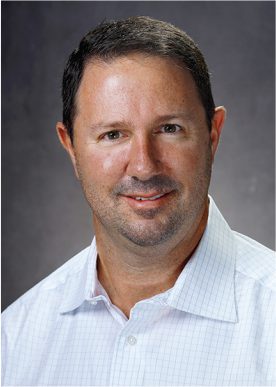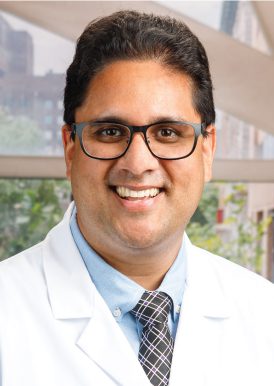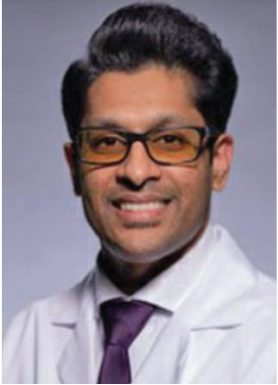Most people would agree that men’s healthcare needs change with each passing year. But even though that’s true, many men – no matter how they are feeling – rarely go to the doctor’s office, says Greg Taylor, DO, Medical Director of Cooper Care Alliance.

Greg Taylor, DO
“Almost everyone falls out of the healthcare system for a period of time when switching between pediatrics and adult care,” says Taylor. “But men tend to establish care much more slowly than women – sometimes in their 20s, 30s or even as late as their 50s. And even then, it can be spotty.”
Women find their way back into healthcare earlier, he says, because their OB/GYN appointments often open the door to other healthcare measures. But for men, it’s a different story.
“Men only really come to the doctor when something is wrong, whether it’s an injury or an illness,” says Taylor. “But those routine exams are just as important. Even if you think you’re perfectly healthy, it helps doctors pick up on little things you didn’t even know were there.”
Here’s how to get back on the right health track – no matter your age.
20s

Vishal Phakey, DO
For many men, the hardest part is making that initial appointment, says Vishal Phakey, DO, a primary care physician at Jefferson Health – New Jersey.
“A lot of men in their 20s are heading into the world for the first time and they feel young and healthy, so it’s hard to get them into the doctor’s office to establish routine care,” says Phakey. “But even if they aren’t worried about yearly physicals, there are still healthcare concerns to consider.”
This, he says, is the age when sexual health is most important.
“Men in their 20s are the leading cause for transmission of STD’s like HIV, chlamydia, gonorrhea and HPV,” says Phakey. “They’re often sexually active with multiple partners, and because many of these infections don’t cause symptoms in men, they may be spreading the disease without knowing they have it.”
Routine exams ensure men keep up with this testing, and they also provide a chance to catch early signs of testicular cancer, which can start as early as your 20s.
“We teach men to do a monthly self-examination in the shower to check their scrotum for lumps and bumps,” says Phakey. “Men should be on the lookout as early as possible, while it’s still very treatable.”
30s

Victor Ukwu, MD
For many men, the big 3 – 0 marks a really defining moment in their health, says Inspira Medical Group family physician Victor Ukwu, MD. While ideally doctors would like to see men jumpstart their healthcare much earlier, in practice they are often in their 30s when they start seeking consistent care.
“This is when things really start to change, both in their bodies and in their lives,” says Ukwu. “Their priorities shift, and it becomes an opportunity to really understand how your health and your family health history plays a part in your life.”
If they haven’t done so already, it’s time to check cholesterol, weight, lipid panels, blood sugar levels, etc., says Ukwu.
“Establishing this baseline sets you up to feel in control of your own healthcare,” he says. “Knowing these starting numbers makes it easier for doctors to immediately notice drastic changes that mean something may be wrong. It also helps create a long-term relationship with your doctor so you can develop better lifestyle habits that will keep you healthy down the road.”
As men start considering having a family, this is also the time to check their hormones and sperm count, says Ukwu.
“A lot of times men don’t realize how much their lifestyle and partying may have had an effect on their sperm count over the years,” says Ukwu. “It’s important to make sure they are as healthy as possible to avoid fertility issues.”
40s

Pradeep Patel, MD
Many men hit their second lapse in healthcare as they enter their 40s, says Pradeep Patel, MD, a Virtua primary care physician.
“Their health, diet and exercise often go on the backburner as they take care of their families or hit new milestones in their careers,” says Patel. “So much is changing in their bodies around this age that they attribute to just aging, and it can take a really acute problem to get them back in the doctor’s office.”
In fact, this idea that their symptoms – increased tiredness, aches and pains – are simply a fact of aging is one of the leading causes of delayed disease diagnosis, says Patel. That’s not to say men should worry about every little thing, but they should keep an eye on their health. When issues become chronic – lingering consistently for more than 8 weeks – it’s time to see a doctor, says Patel.
Other problems require more immediate attention.
“Around your 40s, your doctor might start to talk to you more about your prostate health to make sure you aren’t having any problems like changes in urination,” says Patel.
Some problems may be linked to loss of testosterone, he says, which starts decreasing around this age. Some of the tell-tale symptoms include loss of muscle mass, tiredness and difficulty obtaining or maintaining an erection.
50s

Eddie Akrout, DO
By the time men reach their 50s, they’re often more involved in their own healthcare than ever before, says Eddie Akrout, DO, a family physician at Capital Health.
“This is when they can really start to understand how important their health is,” he says. “They aren’t 20 anymore, and they can feel that.”
Their 50s are when all health choices leading up to this point start to really manifest – and not just in bad ways. Men who were physically active in the decades prior often find themselves without many health problems leading up to their 50s, says Akrout. But inversely, bad choices are going to start to creep into actual symptoms.
“This isn’t the time to shy away from getting answers,” says Akrout. “Getting routine blood work is key because things can shift quickly at this age. Prediabetic becomes diabetic, and cholesterol can suddenly get high enough to need medication.”
This is also when the need for screenings kicks in. Men in their 50s should be scheduling their first colonoscopy depending on the guidelines their physician follows (some say 50s, while others start as early as 45), as well as yearly lung CT scans for men over 50 with a 20-year smoking history or who have quit smoking in the last 15 years.
“At this age,” says Akrout, “whether they’ve had routine healthcare since their 20s or are just starting to focus on it now, this is the time for men to really take control of their healthcare and create healthy habits that will stick for years to come.”














